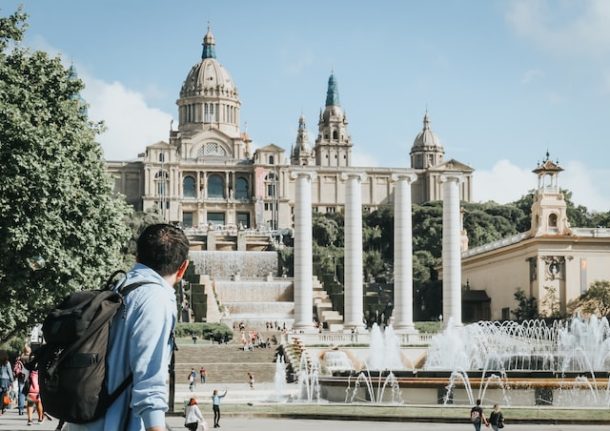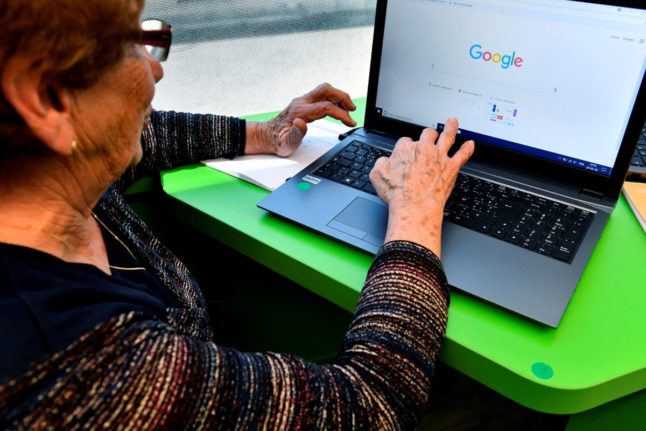Barcelona is made up of 10 different districts and each one of these has its own neighbourhoods, or barris as they’re called in Catalan.
Depending on which district or even which neighbourhood you live in, your cost of living will be very different in everything from rent to a simple cup of coffee.
Generally, the most expensive neighbourhoods are located in the centre and northwest of the city and some of the cheapest can be found in the outer-lying areas or to the east of the centre.
But wherever you live in the city it’s worth keeping in mind that the cost of living in Barcelona has risen by 31 percent in the last five years and rising rental prices are mostly to blame.
According to the annual report by the Metropolitan Area of Barcelona (AMB), the minimum wage needed to be able to live comfortably in Barcelona is €1,435 gross per month.
But of course, it will depend on your living circumstances. According to the report, if you’re living on your own you will need around €1,553 per month, if you’re a single parent you will need €2,220 per month. A couple without children will each need to earn a minimum of €1,054.80 and a couple with two children needs two salaries of €1,547 each.
Rent
Rent is your biggest expense in Barcelona and unfortunately, rental prices have been spiralling recently due to inflation, the return of tourism after Covid lockdowns and the ever-growing popularity of the city.
Cost of living website Numbeo states that the average rent for a one-bedroom apartment in the city centre is €1,031 and a one-bedroom apartment outside of the city centre is €795.
Those looking for somewhere slightly larger to rent will be forking out €1,672 for a three-bedroom apartment in the city centre and €1,299 for a three-bedroom apartment outside the centre.
If you’re prepared to rent a room in a shared apartment with others, this will cut your rental costs considerably. Apartment sharing website Badi states that the average price for a room in a shared apartment in Barcelona costs an average of €500.
READ ALSO: What you should know about renting an apartment in Barcelona
Groceries
With inflation, the cost of groceries has soared in Barcelona in the past few months. Prices will depend on where you shop. Generally, chain supermarkets such as Mercadona are the cheapest, while larger supermarkets where you can also find important products such as Carrefour and El Corte Inglés are more expensive.
According to Expatistan, the average price for a litre of milk costs €0.93, 12 eggs cost €2.92 and 500g of cheese costs €5.76.
In terms and fruit and vegetables, Numbeo states that the average cost of1kg of tomatoes is €2.16, 1kg of apples costs €1.96 and 1kg of potatoes costs €1.33. While the same website gives the average price for chicken fillets as €7.09 and a bag of rice as €1.26.
Eating out
Barcelonians love to eat out whether that’s going for tapas with friends, trying out a new international restaurant or going for brunch on a Sunday. It’s an important part of socialising in the Catalan capital, so you’ll want to budget to eat out a least a few times per month.
Expatistan gives the price of dinner for two in a normal restaurant at €35, while Numbeo states that a combo meal at a chain or fast food place will set you back around €9.
A menú del día (menu of the day) costs an average of €17 in the centre or an expensive area of the city, while you can pay as little as €11 for 3 courses in the cheaper neighbourhoods.
Going out for a coffee will set you back around €2.08. Remember that it’s always cheaper to ask for a café con leche rather than a cappuccino.
READ ALSO – Moving to Barcelona: A guide to the best neighbourhoods to live in
Going out, leisure and entertainment
Barcelona has a great entertainment scene, whether you want to listen to live music in small bar, go clubbing until the early hours of the morning, go on a date to the cinema or spend the night at the theatre.
A cinema ticket costs an average of €9, while you’ll pay €42.74 for a monthly gym membership in the city.
A normal-sized glass of draught or bottled beer at a bar will be around €3 and a cocktail will be around €8-12.
Transport
Public transport in Barcelona is good and affordable. Metros, buses, trams and trains (Rodalies and FGC) all run throughout the city. A 10-journey ticket which can be used on all modes of transport for one zone currently costs €7.65 with the government’s 30 percent reduction, but is normally €11.35.
If you commute, you can get a monthly unlimited journey ticket for one zone called the T-Usual which normally costs €40, but currently is only €20 with government aid.
READ ALSO: The downsides of Barcelona you should be aware of before moving



 Please whitelist us to continue reading.
Please whitelist us to continue reading.
Member comments